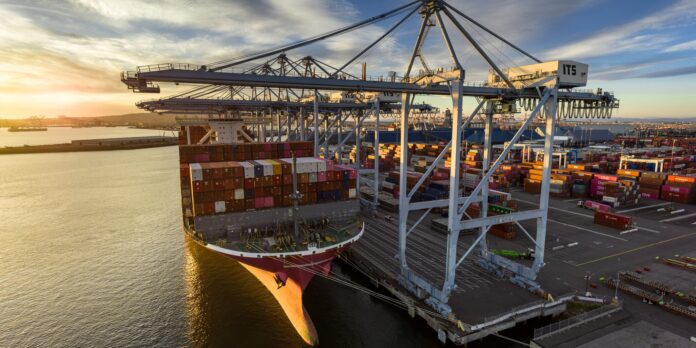
InductEV, a wireless electric vehicle charging solutions firm, is set to deploy its high-power inductive chargers in collaboration with the International Transportation Service (ITS) at the Port of Long Beach.
ITS recently secured a US$3.3 million grant from the California Energy Commission (CEC) to showcase advanced charging technologies tailored to the specific needs of medium- and heavy-duty (MD/HD) electric vehicles (EVs).
The ITS initiative, titled “Hands-free Charging for Battery Electric Cargo Handling Equipment,” is among five projects awarded a collective US$33 million by the CEC through a competitive 2024 funding round.
Philadelphia and Long Beach-based InductEV was chosen as a project partner to supply its high-power wireless inductive charging system for five of ITS’ battery-electric cargo handling vehicles while parked.
This marks InductEV’s first deployment at a West Coast port facility, following its installation at APM Terminals in Port Elizabeth, New Jersey, last year.
“We are proud to partner with the ITS team at the Port of Long Beach to help them realize their vision for a more efficient and environmentally friendly solution to power their fleet,” said John F. Rizzo, President and CEO of InductEV. “As more port facilities and freight terminals electrify their fleets, we expect to see wireless inductive charging play a leading role in the process.”
This grant, part of the CEC’s Clean Transportation Program, represents the first phase of a two-part funding initiative aimed at demonstrating innovative charging technologies and business models that support the widespread adoption of MD/HD EVs.
“ITS is committed to serving the communities where we do business, to provide our customers with innovative, high-quality services, and to protect the health of our workers and our environment,” noted Kim Holtermand, CEO of ITS. “The embrace of these innovative charging technologies reinforces that commitment.”
InductEV Charging Technology: InductEV’s cutting-edge wireless charging system utilizes inductive charging pads, consisting of an in-ground pad that automatically activates when aligned with a corresponding pad beneath the vehicle. The company currently offers systems ranging from 75 kW to 450 kW, delivering high-power wireless charging without requiring additional real estate compared to wired conductive chargers. The hands-free functionality also enhances driver safety.
Notably, this technology shifts the traditional charging model away from reliance on energy-intensive overnight wired charging at depots. Instead, it enables multiple shorter charging sessions throughout the day, optimizing the use of available clean energy. This approach eases the transition to electrification for both power utilities and fleet operators by improving efficiency and reducing infrastructure strain.





